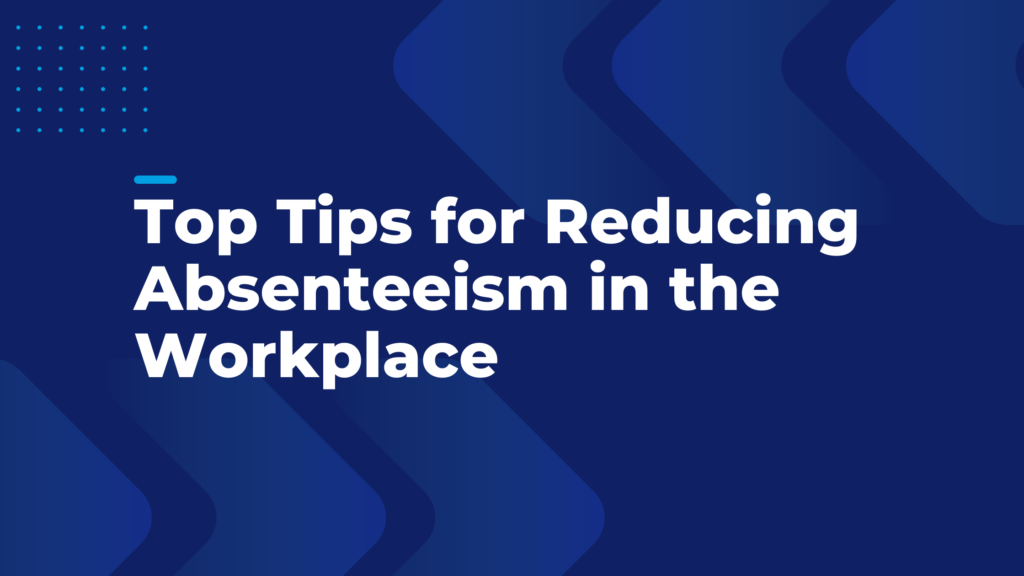Absenteeism is a common challenge for businesses across all sectors. High levels of absenteeism can lead to decreased productivity, strained employee relationships, and increased operational costs. At Asclepius Occupational Health, we understand the importance of creating a supportive work environment to keep your workforce healthy and engaged. Here are our top tips for reducing absenteeism and promoting a culture of well-being in your organisation.
Prioritise Employee Well-being
A workplace that actively supports the physical and mental health of its employees fosters loyalty and reduces absenteeism. Consider implementing the following:
- Employee Assistance Programmes (EAPs): Offer confidential counselling services to support mental health.
- Flexible Working Policies: Allow employees to balance work with personal responsibilities, reducing stress and burnout.
- On-site Health Services: Partner with occupational health providers to offer health checks, vaccinations, and ergonomic assessments.
Address Workplace Stress
Stress is one of the leading causes of absenteeism. Proactively addressing workplace stress can have a significant impact:
- Identify Triggers: Regularly review workloads, deadlines, and interpersonal dynamics to pinpoint stress factors.
- Encourage Open Communication: Create an environment where employees feel comfortable discussing concerns.
- Provide Training: Equip managers with the skills to recognise and address stress in their teams.
Promote a Positive Work Culture
A positive work environment encourages employees to show up and give their best. Foster a culture that values:
- Recognition: Regularly acknowledge and reward employees for their contributions.
- Inclusion: Ensure every employee feels valued and respected, regardless of their role.
- Team Building: Organise activities that strengthen relationships and boost morale.
- Implement Effective Absence Management Policies
Clear and consistent absence management policies ensure accountability while supporting employees in need:
- Track Absences: Use software to monitor patterns and identify potential issues.
- Conduct Return-to-Work Interviews: Discuss reasons for absence and explore solutions to prevent recurrence.
- Support Long-Term Absences: Work with occupational health professionals to create phased return-to-work plans.
Invest in Employee Development
Employees who feel valued and challenged are less likely to take unnecessary time off. Invest in:
- Training Opportunities: Help employees enhance their skills and grow in their roles.
- Career Progression: Provide clear pathways for advancement within the organisation.
- Personal Development: Offer workshops on topics like mindfulness, resilience, and time management.
Encourage Healthy Lifestyles
Healthier employees are less likely to take sick days. Support healthy living by:
- Providing Nutritious Options: Stock healthy snacks in the office and promote balanced diets.
- Encouraging Physical Activity: Offer gym memberships, organise fitness challenges, or introduce standing desks.
- Hosting Wellness Programmes: Run initiatives focused on smoking cessation, weight management, or mental well-being.
Lead by Example
Management plays a key role in shaping workplace culture. When leaders prioritise their own health and demonstrate a positive attitude, it sets a standard for the entire team. Ensure managers:
- Take their own health seriously.
- Avoid overworking and encourage work-life balance.
- Promote a culture of transparency and support.
Conclusion
Reducing absenteeism requires a proactive, holistic approach that considers the well-being of your employees. By implementing these strategies, you can foster a healthier, more engaged workforce that thrives both individually and collectively. At Asclepius Occupational Health, we’re here to help you develop tailored solutions that meet the unique needs of your organisation.
For more information on how we can support your business contact us today!



